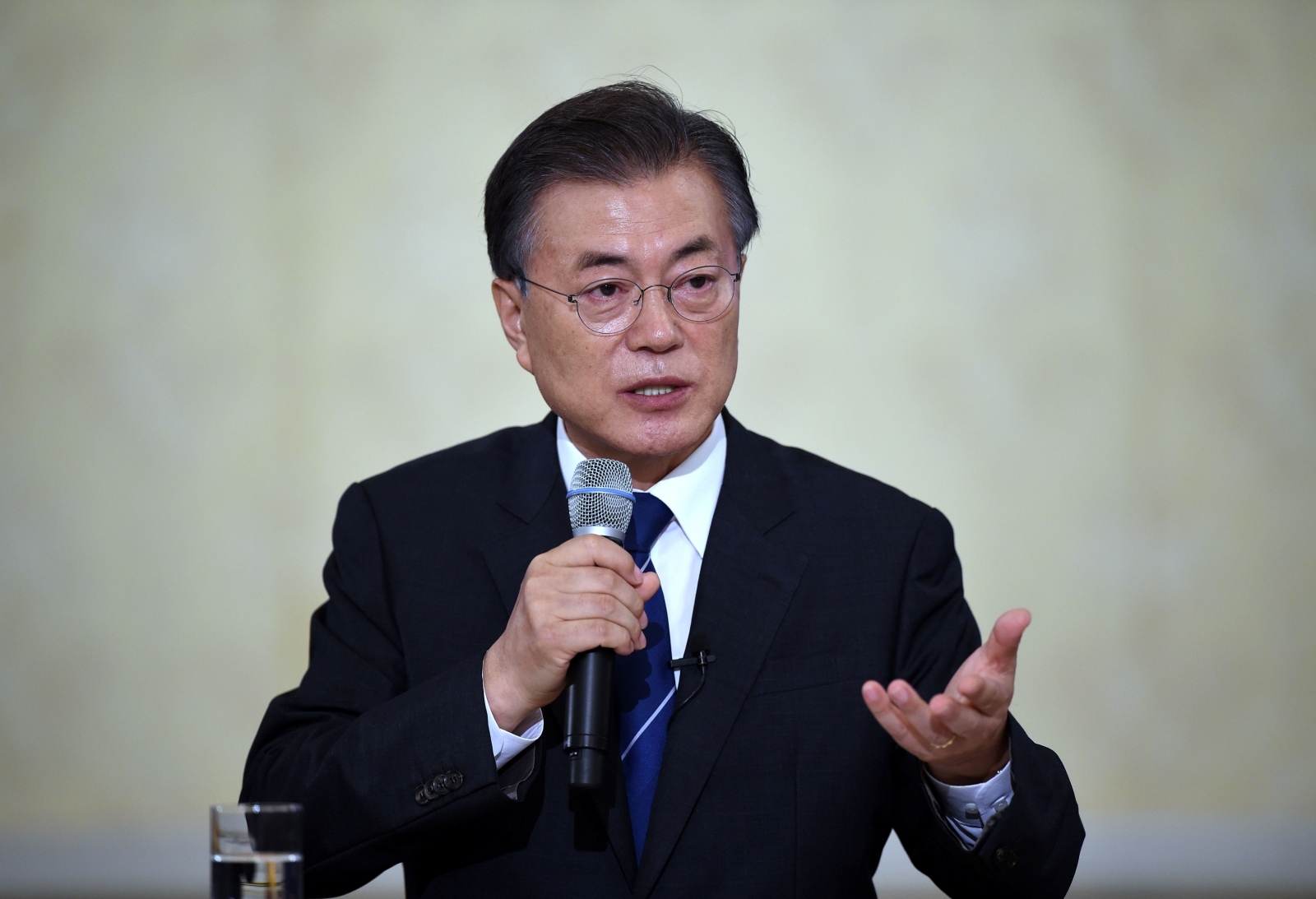South Korea seeks Winter Olympics cooperation with North to ease military tension
Kim Jong-un said he's willing to send a delegation to the Olympics, though he also repeated nuclear threats against the US.
South Korea on Tuesday (2 January) offered high-level talks with rival North Korea to find ways to cooperate on next month's Winter Olympics in the South. Seoul's quick proposal after a rare rapprochement overture from Pyongyang a day earlier offers the possibility of better ties after a year that saw a nuclear standoff increase fear of war on the Korean Peninsula.
In a closely watched New Year's address, North Korean leader Kim Jong Un said Monday he's willing to send a delegation to the Olympics, though he also repeated nuclear threats against the United States. Analysts say Kim may be trying to drive a wedge between Seoul and its ally Washington as a way to ease international isolation and sanctions against North Korea.
Kim's overture was welcome news for a South Korean government led by liberal President Moon Jae-in, who favors dialogue to ease the North's nuclear threats and wants to use the Olympics as a chance to improve inter-Korean ties.
Moon's unification minister, Cho Myoung-gyon, proposed in a nationally televised news conference that the two Koreas meet Jan. 9 at the shared border village of Panmunjom to discuss Olympic cooperation and how to improve overall ties.
Earlier Tuesday, Moon spoke of Kim's positive response to earlier South Korean dialogue overtures and ordered officials to study how to restore talks with North Korea and get the North to participate in the Olympics.
North Korea hasn't immediately reacted. But if there are talks, they would be the first formal dialogue between the Koreas since December 2015.
Relations between the Koreas have plunged as North Korea under Kim expanded its weapons programs amid a hard-line stance by Moon's conservative predecessors. Last year, North Korea conducted its sixth and most powerful nuclear test and test-launched three intercontinental ballistic missiles as part of its push to possess a nuclear missile capable of reaching anywhere in the United States. The North was subsequently hit with toughened U.N. sanctions, and Kim and U.S. President Donald Trump exchanged warlike rhetoric and crude personal insults against each other.
Possible inter-Korean talks could provide a temporary thaw in strained inter-Korean ties, but could also weaken U.S.-led international pressure on the North. After the Olympics, inter-Korean ties could become frosty again because North Korea has made it clear that it has no intention of accepting international calls for nuclear disarmament and instead wants to bolster its weapons arsenal in the face of what it calls increasing U.S. threats.
In his address Monday, Kim said the United States should be aware that his country's nuclear forces are now a reality, not a threat. He said he has a "nuclear button" on his office desk, warning that "the whole territory of the U.S. is within the range of our nuclear strike."
He called for improved ties and a relaxation of military tensions with South Korea, saying the Winter Olympics could showcase the status of the Korean nation. But Kim still said South Korea must stop annual military exercises with the United States, which he calls an invasion rehearsal against the North.
The New Year's address is an annual event in North Korea and is watched closely for indications of the direction and priorities Kim may adopt in the year ahead.


© Copyright IBTimes 2025. All rights reserved.




















